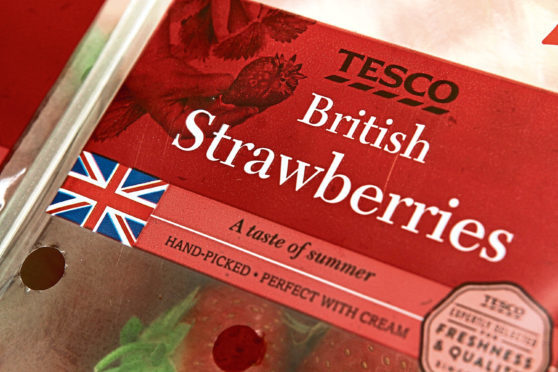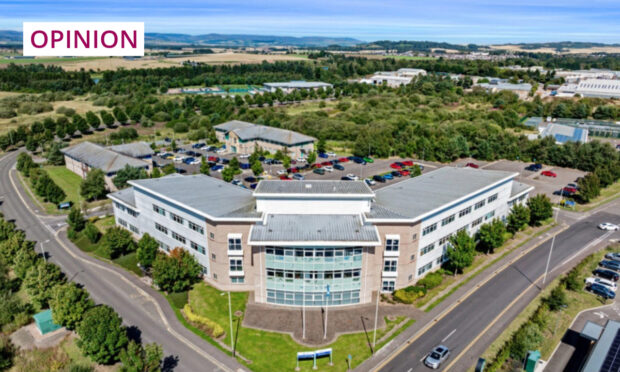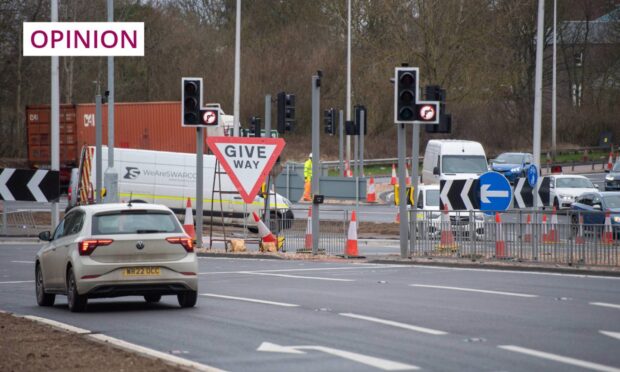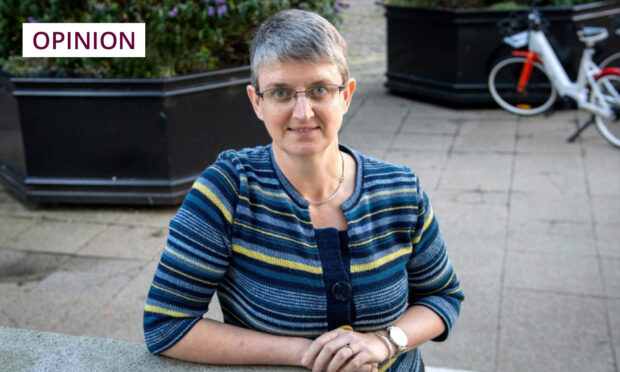Sir, – I’m sick to death of having my face rubbed into Union Jacks.
I’d be ecstatic to buy produce from England marked “English” and emblazoned with St George’s Cross. But why do we need the flag at all?
Do we get produce from other countries smothered in their national colours? Hardly.
I recently didn’t buy strawberries from Angus because they were covered in the Union Jack.
I did buy Scottish strawberries marked “British” last week – although grudgingly – but the addition of that flag is a step too far.
The “Butcher’s Apron” is just a daily reminder of the constant garbage we are forced into in the shape of Brexit, Trident, illegal wars, selling arms to the Saudis to kill Yemeni children and so on.
Mark Harper.
Fitzroy Street,
Dysart.
God’s word at odds with vote
Sir, – Leo Varadkar, the Irish Taoiseach, on the vote to liberalise abortion, is quoted as saying it was “the day Ireland stepped out from our shadows, into the light, and took our place among the nations of the world” (The Courier, May 28).
It appears that he, and many others, need reminded that it is God who established marriage and designated it as the place for sexual intimacy and procreation.
It is also God who creates life, having formed us in our mother’s womb (Psalm 139 verse 13).
As I see it, in recent centuries, especially in times of Christian revival, many of the nations of the world used to understand this better.
Bearing this in mind, there can be no justification, in the great majority of cases, for ending a pregnancy by killing the unborn baby.
Stuart Wishart.
Walnut Grove,
Blairgowrie.
Basic flaws in basic income
Sir, – As a rule of thumb, any financial idea being promoted by both the SNP and Labour’s John McDonnell should be treated with extreme caution and that’s certainly true of “basic income” (Fife to lead way with basic income pilot, The Courier, May 29).
It’s another thoroughly bad idea dreamt up by the utopian Left and its effect on the benefits system would be woefully counterproductive.
The idea is that if the state automatically gives every citizen enough to live on, they will accept irregular or part-time because they won’t lose welfare benefits. The problem is it’s extremely expensive and people who have actually worked on social security policy say it’s baloney because incentives work and handouts don’t.
Basic income would be a major shift in how our economy works: instead of being paid to create value, we’d get paid for doing nowt. The Swiss think it’s a daft idea, the Finns gave up on it, while Canada and Holland are inveterate tinkerers. Added to that, Fife Council couldn’t organise “the hens’ march to the midden”. Rev Dr John Cameron.
Howard Place,
St Andrews.
Questions of currency
Sir, – From a quick look on Wikipedia I reckon that, over the centuries 62 countries have become independent of the UK, and, since 1990, 34 new countries around the world have become independent.
Some of them took the step a long time ago, some of them quite recently.
Some are huge, some are tiny; some are rich, some are poor.
But all of them must have made some arrangement to have a usable currency going forward.
So why all the unionist concern about what currency an independent Scotland will use when it becomes independent?
When the time comes Scotland will decide, on the factors prevailing at the time, with the advice of the relevant experts, what is best for the country, not just the economy, but also for the people who live here.
Given the current state of the UK, and the Brexit process, I would say there is much more reason for concern about the UK economy – as we approach crunch time for a deal or no deal – than there is about what Scotland’s monetary arrangements might be at some indeterminate time in the future.
Les Mackay.
Carmichael Gardens, Dundee.
Fruitless hunt for pot of gold
Sir, – For the supporters of independence who have never accepted the reality of the GERS figures (“deficit deniers”) the so-called Growth” Commission report must have come as a nasty shock.
Furthermore the report warns that our deficit would be “unsustainable” even after cuts in defence spending and so on, and “further action” (code for cuts in public services and tax hikes) to reduce the deficit would be required to reach the Commission’s target of 3% of GDP.
Furthermore, Sterlingisation would also be a bitter pill to swallow, whereby we would have no say in interest rates, monetary policy powers and only limited lenders of last resort protection.
Small wonder that Commission chairman Andrew Wilson summed up his report by saying “There is no pot of gold, black or otherwise, at the foot of the independence rainbow”.
The only question is; why did it take Mr Wilson more than 18 months and trips around the world to come to terms with the blindingly obvious?
Ian Lakin.
Murtle Den Road.
Aberdeen.
Scots should grasp potential
Sir, – As someone with a background in business and finance I approached the Scottish Growth Commission’s report with an objective mind.
It’s certainly a detailed analysis of Scotland’s considerable resources, innovation, hi-tech, services, oil, gas, renewables, food, drink, tourism sectors etc, addressing gender pay gap, excessive inequality and social injustice.
The constitutional framework has changed since 2014. Brexit means there’s no status quo, Scotland will be dragged out of Europe and a single market nine times larger than the UK market, stuck in an isolationist UK.
The report sets out sensible immigration policies specifically catering for Scotland’s needs, a must in order to ensure improvements in productivity that will boost growth rates and address demographic changes.
The fantastic economic potential of an independent Scotland is huge.
B Griffiths.
Denbigh,
Wales.
Helping Scouts to reach for stars
Sir, – Volunteers’ Week is from June 1-7 and I would like to pay tribute to each and every one of the amazing volunteers who support the Scouts, helping young people develop skills for life.
Scouting started me on an incredible journey. As a Cub Scout, I never thought that one day I would be looking at our beautiful planet from space. Thanks to the generosity and commitment of my Scout leaders, the opportunities and encouragement I received helped to open up new horizons, and gave me confidence to pursue my aspirations.
Scouting helps young people develop those kind of skills you’re not going to find in a classroom.
It gets people outdoors, working together, learning teamwork, communication, and building character.
Scouts are also taking on some of the biggest issues in our communities through our A Million Hands initiative. They are supporting people living with dementia or disability, working to develop greater understanding of mental wellbeing and leading the fight for access to clean water and sanitation worldwide.
To anyone thinking of volunteering, I would say any time you can give is truly invaluable. You’ll have fun, learn new skills and be part of something truly amazing.
Tim Peake,
Scout ambassador and astronaut.










